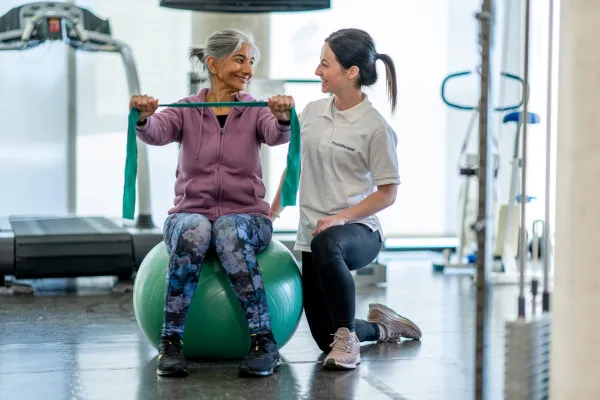
What Does a Physio Do for Older Adults? A Simple Guide to Aged Care Services
What Does a Physio Do for Older Adults?
A Simple Guide to Aged Care Services
When you think of physiotherapy, you might picture someone recovering from a sports injury or post-surgery rehab. But did you know that physios play a big role in aged care too?
If you’ve got a parent, grandparent, or even a neighbour who’s getting older and starting to slow down, you might be wondering how to help them stay safe, mobile, and independent for as long as possible. That’s where physiotherapy comes in.
Let’s break it down—simple, clear, and focused on what matters most: helping older adults live better, not just longer.
So, What Does a Physio Actually Do for Older People?
Physiotherapists work with older adults to improve mobility, strength, balance, and overall function. But it’s not a one-size-fits-all approach. Every person’s body, health, and daily routine are different, so physio programs are tailored to suit the individual.
Here’s how we help:
1. Mobility and Strength Assessments
This is often the first step. A physio will check how someone is walking, moving, standing, and sitting. We look at strength, balance, flexibility, and pain levels.
These assessments give us a clear picture of where support is needed—whether that’s building strength, improving balance, or reducing stiffness.
2. Fall Prevention Programs
Falls are one of the biggest risks for older adults, and they can lead to serious injuries. A physio helps lower this risk with targeted exercises that build balance and coordination.
We also make recommendations around home safety—like removing trip hazards or adjusting furniture. Sometimes, even small changes can make a big difference.
3. Exercise Plans to Build Confidence and Strength
We don’t just give people a set of exercises and send them on their way. We walk with them through the process.
That might mean:
Gentle strength-building routines
Chair-based exercises
Walking programs
Stretching to ease joint stiffness
Over time, these movements can help someone feel stronger, more stable, and more confident moving around—whether it's at home, in the garden, or out in the community.
4. Pain Management
Chronic pain from arthritis, past injuries, or general wear and tear is common in older age. Physiotherapists use hands-on techniques, movement strategies, and gentle exercises to help ease pain and make everyday tasks more manageable.
5. Help With Mobility Aids and Equipment
Not sure if your loved one needs a walking stick or a wheely walker? Or maybe you're wondering if that old chair is still safe to get in and out of?
Physios are trained to recommend the right mobility equipment for the person and their lifestyle. We’ll also show them how to use it properly, so they stay safe and confident.
6. Support in Aged Care Facilities and at Home
Whether someone is living at home or in an aged care facility, physios can visit and provide support where it’s needed.
In aged care homes, we often run group exercise sessions, manage pain care plans, and help with mobility for both short- and long-term residents.
At home, we support clients on Home Care Packages with regular visits, tailored programs, and updates to family or care managers.
But It’s Not Just About Movement…
Physio can help someone stay connected to the things they love—gardening, walking the dog, cooking, or even just moving around the house with ease.
When people move better, they feel better, and that can lead to more social interaction, better mood, and a higher quality of life overall.
Final Thoughts
Whether it’s helping someone get up safely from a chair, manage pain, or walk to the letterbox with more confidence, physiotherapy is all about supporting older adults to live well.
If you’ve got a loved one who could benefit from extra support, a physio might be just what they need. And at Forster Tuncurry Physiotherapy, we’re here to help—gently, professionally, and always with care.



